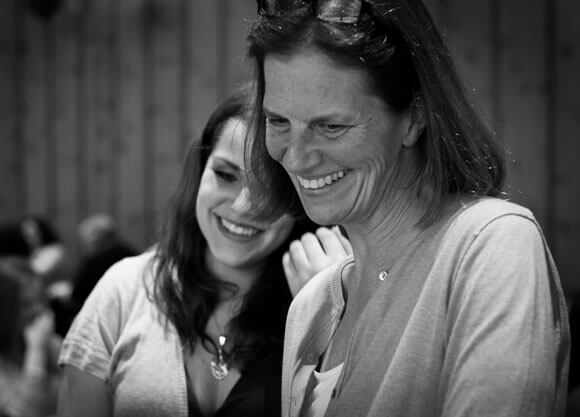
Sociology professor reflects on personal impact of Title IX
February 01, 2023

February 01, 2023

Suzanne Hudd, professor of sociology in Quinnipiac’s College of Arts and Sciences, described it as life changing. Hudd, who was admitted to Yale in 1977 played on the school’s women’s basketball team only five years after Title IX was implemented — and less than a decade after the Ivy League university first admitted women.
“Women athletes have somewhat come to take equality as a given, to assume it will be present,” Hudd said. “But the statistics on salary and opportunities for professional female athletes and coaches show us that this is not the case. Women play with the same commitment, and therefore they should expect to receive the same opportunities in sport that men do. However, it was only within the past couple of years that a female player for the Oregon women’s basketball team, Sedona Prince, exposed the inequality in training facilities for the men’s and women’s NCAA tournament teams. This offered a vivid reminder that while much has changed for women, there is still a good deal of room for improvement.”
The benefits of sport participation are many, she said, citing perseverance, persistence, learning to adjust, adapt and learning to work with people who have different skills than you, but which when combined with your own talents, produce something that neither of you could achieve alone.
“Allowing as many people as possible to experience these outcomes is clearly advantageous for our society overall,” she said. “And yet, it is unfortunate we have to legislate such things. In an ideal world, men and women would have equal access to playing opportunities without needing to mandate it.”
For Hudd personally, Title IX changed everything, she said.
“In early 1976, the women of the Yale crew team protested the unequal conditions for male and female athletes. Their protest received international recognition, and as a result, Yale moved quickly to increase funding for women’s sports,” she said. “Were it not for the courage of these women, I might not have been admitted to Yale to play basketball. Title IX and my involvement in high school, and then college sports gave me leadership opportunities and I built some deep friendships that have lasted for decades.”
In fact, Hudd still gets together with her former high school teammates a couple times each year, and this past summer, her former coach joined them, as well.
“Equality is not a zero-sum game,” Hudd said. “When one group, in this case women, receives opportunities, it doesn’t mean less for another group. Instead, it’s a game changer for everyone. Providing equal access to resources like sporting opportunities can change how we see the world. When a team learns to truly work together, superficial differences — such as talent, race or income — disappear. Everyone plays their part to the best of their ability. We see others’ needs as our own, always striving for what’s best for the whole. This is what equality looks like.”
Sports were brought into schools historically because they provided an opportunity for young students to learn how to cooperate and work with others, she said.
“Unlike academic achievements, which are individual, athletic achievement requires collective thinking,” Hudd said. “Team players must consider what’s best for the group and prioritize it. In order to be successful in sport, team athletes learn how to bring out and then utilize everyone’s best, unique talents.”
Hudd’s time on the women’s basketball team at Yale has made her a more well-rounded person, she said.
“I think my time in sport has made me a better teacher, and I suppose a better person,” she said. “Every athlete I know has had to cope with failure at some point – losing to a team you expected to beat. This was certainly the case for me. Athletes become masters of resilience. We learn to coach ourselves, and often our teammates, through the disappointments that losing, or performing poorly can bring. I teach resilience often to my students, helping them to bring out the best in themselves, and consoling and encouraging them in the moments when that doesn’t happen.”
Quinnipiac Today is your source for what's happening throughout #BobcatNation. Sign up for our weekly email newsletter to be among the first to know about news, events and members of our Bobcat family who are making a positive difference in our world.
Sign Up Now